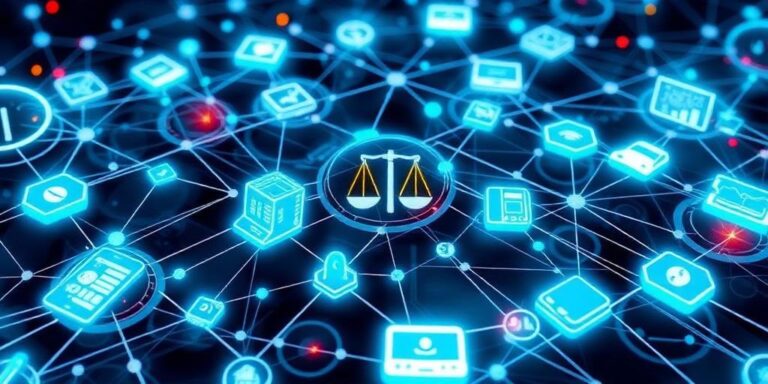The Ethics of Ubiquitous Computing and Surveillance (2026 Debate)
Ubiquitous computing, the concept of embedding computation into everyday objects and activities, has rapidly moved from a futuristic vision to a present reality. As we step into 2026, the proliferation of smart devices, IoT (Internet of Things) ecosystems, and advanced surveillance technologies has made computational power virtually invisible and omnipresent. This widespread integration, while offering unprecedented convenience and efficiency, introduces profound ethical dilemmas, particularly concerning privacy, autonomy, and social justice.
The Rise of Ubiquitous Surveillance
Ubiquitous computing inherently involves data collection. Sensors embedded in devices, public spaces, and even our clothing continuously gather information about our behaviors, preferences, and movements. This data is then processed and analyzed to optimize services, predict trends, and enhance security. However, the same infrastructure can also be used for pervasive surveillance, both by governments and private entities.
Consider these scenarios:
- Smart Cities: Urban environments equipped with sensors that monitor traffic, air quality, and pedestrian activity can also track individuals’ locations and behaviors in real-time.
- Wearable Technology: Fitness trackers and smartwatches collect biometric data, raising concerns about data security and potential misuse by insurance companies or employers.
- Smart Homes: Devices like smart speakers and security cameras gather intimate details about our daily lives, making us vulnerable to hacking and privacy breaches.
Ethical Considerations
The ethical implications of ubiquitous computing and surveillance are multifaceted:
1. Privacy vs. Security
Balancing the need for security with the right to privacy is a central challenge. Surveillance technologies are often justified by their potential to prevent crime and enhance public safety. However, the constant monitoring of individuals can lead to a chilling effect on freedom of expression and assembly. The question becomes: How much privacy are we willing to sacrifice for the promise of security?
2. Autonomy and Manipulation
Ubiquitous computing can subtly influence our decisions and behaviors. Personalized recommendations, targeted advertising, and algorithmic nudges shape our choices in ways we may not even realize. This raises concerns about autonomy and the potential for manipulation. Are we truly free when our environment is designed to subtly guide our actions?
3. Data Ownership and Control
Who owns the data generated by ubiquitous computing systems? Individuals, corporations, or governments? The answer to this question has significant implications for privacy, security, and economic power. If individuals do not have control over their data, they are vulnerable to exploitation and discrimination.
4. Bias and Discrimination
Algorithms used in ubiquitous computing systems can perpetuate and amplify existing social biases. Facial recognition technology, for example, has been shown to be less accurate for people of color, leading to potential misidentification and unjust treatment. Ensuring fairness and equity in the design and deployment of these technologies is crucial.
5. Transparency and Accountability
Many ubiquitous computing systems operate in a black box, making it difficult to understand how decisions are made and who is responsible. Lack of transparency erodes trust and makes it challenging to hold those in power accountable. Open-source technologies and transparent algorithms are essential for fostering public trust.
Navigating the Ethical Landscape
Addressing the ethical challenges of ubiquitous computing requires a multi-pronged approach:
1. Robust Regulatory Frameworks
Governments must develop comprehensive regulations that protect privacy, promote transparency, and ensure accountability. These regulations should address data collection, storage, and use, as well as the potential for bias and discrimination.
2. Ethical Design Principles
Designers and developers should adopt ethical design principles that prioritize privacy, autonomy, and fairness. This includes incorporating privacy-enhancing technologies, conducting bias audits, and engaging in participatory design processes.
3. Public Education and Awareness
Educating the public about the ethical implications of ubiquitous computing is crucial for fostering informed consent and empowering individuals to protect their rights. This includes promoting digital literacy and critical thinking skills.
4. Independent Oversight and Auditing
Independent organizations should be established to oversee and audit ubiquitous computing systems. These organizations can assess compliance with ethical guidelines, investigate complaints, and provide recommendations for improvement.
5. International Cooperation
The ethical challenges of ubiquitous computing transcend national borders. International cooperation is essential for developing shared standards and norms that promote responsible innovation and protect human rights.
Conclusion
As ubiquitous computing becomes increasingly pervasive, it is imperative that we grapple with its ethical implications. By prioritizing privacy, autonomy, and social justice, we can harness the power of these technologies for the benefit of all. The 2026 debate is not just about technology; it is about the kind of society we want to create.




